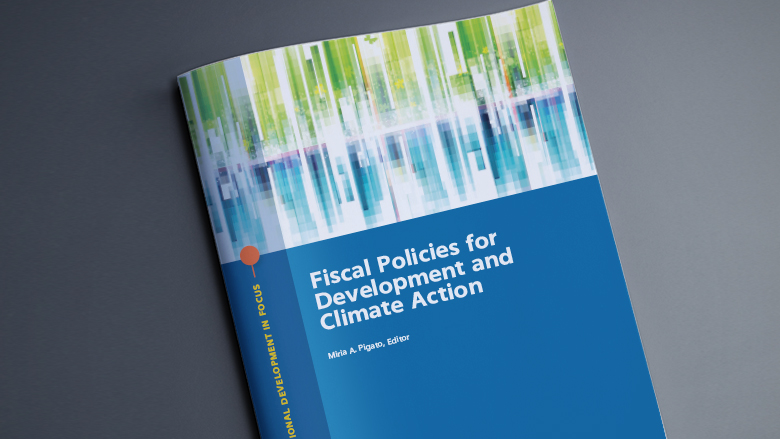
STORY HIGHLIGHTS
- A new publication from the World Bank Group provides a call to action and a road map for finance ministers leveraging fiscal policies to drive climate action;
- The book argues that well-designed environmental tax reforms can mitigate climate change while raising well-being. Preventive investment in adaptation and appropriate risk management strategies can build countries’ resilience to climate change.
- Although environmental tax reforms offer diverse benefits, they are often unpopular. Any successful fiscal policy for climate action will start with a public information campaign and will include measures to support poor households and vulnerable firms disproportionately affected by higher fuel prices.
HELSINKI, Finland, February 19, 2019 – Finance ministers are the linchpin of effective climate action, asserts a publication from the World Bank Group. Fiscal Policies for Development and Climate Action outlines the ways in which finance ministries can leverage fiscal reforms to reduce climate emissions and deliver on important development goals.
The book argues that fiscal reforms, such as environmental taxes, are crucial for mitigating and adapting to climate change. By implementing environmental tax reforms (ETR), developing countries can reap a “triple dividend”: cutting pollution, raising economic activity, and generating development co-benefits such as cleaner water, safer roads and improvements in human health. Moreover, early, preventive investments in adaptation and well-designed fiscal measures to strengthen disaster responses, can increase countries’ resilience to climate change.
Although finance ministries have mostly remained at the periphery of climate action, climate change is not only an environmental challenge; it is also a fiscal and economic one that can undermine development progress to date. This book is a call to action and a road map for implementing fiscal policies to combat climate change. Developing countries need urgent action to avoid climate catastrophe, and fiscal reforms – for mitigation and adaptation - may be the most powerful tool.
Key Findings:
- Well-designed fiscal policies can mitigate climate change while raising well-being.
Environmental tax reforms (ETR), including those on energy, transportation and pollution discourage the burning of fossil fuels and other environmentally damaging activities while promoting innovation and investment in cleaner, more efficient sources of energy. The revenue generated by environmental taxes can be used to reduce other, preexisting taxes – such as on labor or income – or to finance spending on health, education, social protection, or public infrastructure to increase the economy’s resilience to climate change. - Environmental taxes can also have positive effects on poverty and equity.
Wealthier households, which generally consume larger shares of fuel than poorer households, disproportionately benefit from low prices for fossil fuels. Meanwhile, the welfare costs of environmental problems, such as ill health due to air and water pollution, are heavily concentrated among the poor. By addressing this uneven distribution of benefits and costs, ETR can help to improve welfare and promote shared prosperity. - Environmental tax reforms can help firms become more productive.
According to the publication, increases in fuel prices may improve firms’ performance. Evidence from enterprises surveys and country cases show that firms adopt more productive and energy-efficient capital rather than increasing output prices in response to fuel price hikes. As a result, firms tend to become more productive and innovative. However, for some firms, particularly those in high energy-intensity sectors, there may still be adjustment costs and competitive pressures in the short-term. Time-limited support measures are therefore needed to support these vulnerable firms. - Proactive fiscal policies can help countries become more climate-resilient.
Governments around the world rarely invest in preventive adaptation measures or adjust their savings and debt policies to prepare for serious climate-driven disasters. But models from this book find that early investments in adaptation, particularly when funded through taxation, budget reallocations or spending cuts, result in better economic outcomes than delaying action or focusing on remedial actions. There are many ways for finance ministries to build resilience, including incorporating climate change considerations into public investment management; establishing a robust fiscal responsibility framework, creating fiscal buffers and seeking ways to transfer climate risks to markets. - Broad support is critical to the success and effectiveness of fiscal policies for climate action.
The first step a finance ministry should take when developing fiscal policies for climate action is to develop a public outreach strategy. Despite the various economic, well-being, environmental and fiscal benefits of ETR, public support for these policies tends to be low. The costs of environmental taxation – such as higher prices for fuel – are highly visible, while the benefits – cleaner air, safer roads, reduced climate risks and increased social spending – tend to be more abstract. Policy makers must build public support and ensure that lower-income households and vulnerable firms negatively impacted by ETRs are compensated through policy changes (e.g. reduction of other taxes) or other mechanisms